 Petzlover
Petzlover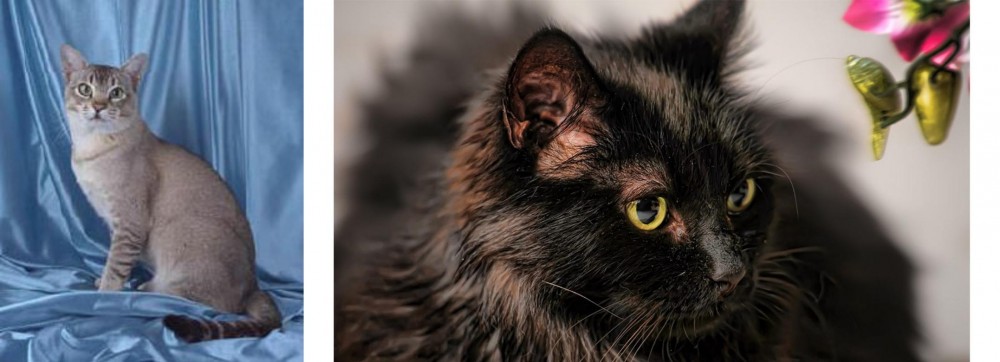 Both American Keuda and Chantilly/Tiffany are originated from United States. Both American Keuda and Chantilly/Tiffany are having almost same weight. Both American Keuda and Chantilly/Tiffany has almost same life span. Both American Keuda and Chantilly/Tiffany has same litter size. Both American Keuda and Chantilly/Tiffany requires Low Maintenance.
Both American Keuda and Chantilly/Tiffany are originated from United States. Both American Keuda and Chantilly/Tiffany are having almost same weight. Both American Keuda and Chantilly/Tiffany has almost same life span. Both American Keuda and Chantilly/Tiffany has same litter size. Both American Keuda and Chantilly/Tiffany requires Low Maintenance.
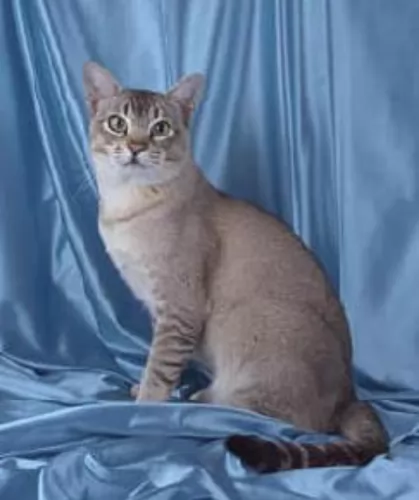 It is thought that the cat was brought to America by the Spanish to keep the rat population down.
It is thought that the cat was brought to America by the Spanish to keep the rat population down.
The name KEUDA stands for Kitten Evaluation Under Direct Assessment which is actually the name of a program that was running in Texas, Oklahoma and New Mexico and was for investigating the kinds of cats that survived as barn cats.
Today the Keuda isn’t registered and it’s not a well-known cat either, being looked upon as being similar to the Egyptian Mau breed as it shares some physical similarities with the Mau.
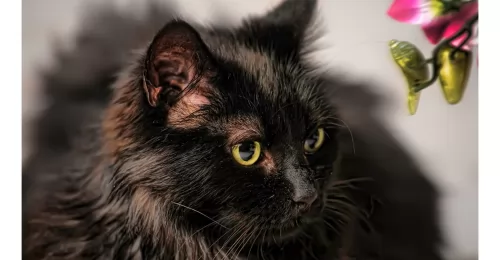 The beautiful Chantilly/Tiffany cat gets people thinking the cat is a semi-longhaired Burmese, but of course, it's not.
The beautiful Chantilly/Tiffany cat gets people thinking the cat is a semi-longhaired Burmese, but of course, it's not.
The way the Chantilly came about was that there were a pair of chocolate-colored cats but their origins were unknown. The first litter of Chantilly kittens was born in New York in 1969 and people were so taken up by the beautiful kittens that a breeding program was started.
The cat was first started as a foreign longhair and then it changed to Tiffany. In a British registry, a cat breed that was a cross between a Chinchilla Persian and a Burmese was named the Tiffanie and renamed Chantilly and referred to as the Chantilly/Tiffany.
The breed is recognized by most major cat registries.
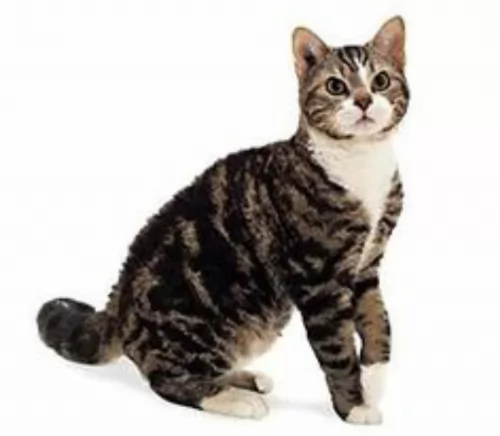 You can’t really pin-point what the American Keuda looks like as it looks a lot like the Maus but it can also look like a Siamese cat or even others.
You can’t really pin-point what the American Keuda looks like as it looks a lot like the Maus but it can also look like a Siamese cat or even others.
It is a medium-sized cat and can weigh up to 5 or 6kg while being very lithe and athletic. The head of the cat is medium-sized, the ears medium-large, the eyes almond-shaped, and the tail is slightly tapered.
An unusual aspect with this cat is its belly flap – loose skin that flaps at each elbow. The head is wedge-shaped, it has almond-shaped eyes, large ears and the fur is soft and silky and in a variety of patterns as well as solid colors. The coat is short to medium in length and there is no undercoat.
American Keudas are just your regular cat in personality - active, adaptable, inquisitive, and intelligent while being strong and agile.
They are also adaptable and social, getting along well with children as well as other pets in the home. It is also quite unusual in that it likes playing with water. They are also playful and love running, jumping and climbing and indoors it will want a climbing cat tree.
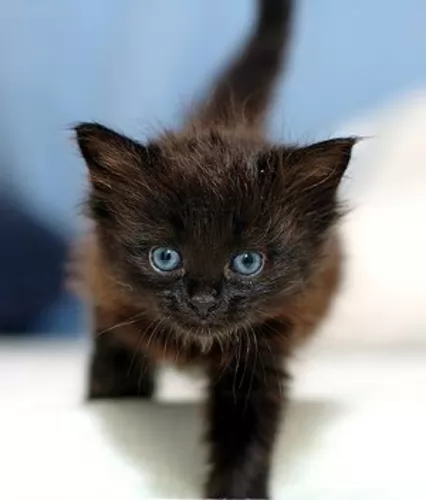 The cat has a fairly broad head with widely spaced ears of medium size. The eyes are oval-shaped and gold in color. The fur is semi-long and there is no undercoat. The tail is plumed.
The cat has a fairly broad head with widely spaced ears of medium size. The eyes are oval-shaped and gold in color. The fur is semi-long and there is no undercoat. The tail is plumed.
Apart from the original chocolate brown of the cat, other colors of the coat can include fawn, cinnamon, black, lilac and blue, with the chocolate brown being the favorite color.
The Chantilly promises to be a devoted and loyal feline companion for you, much preferring the company of his human family than to being alone.
It gets on well with other pets in the house as well as with respectful, gentle children. He isn't a demanding cat and he tries to talk with his family by chirping. It’s a balanced cat, with a fair share of docility and energy, making the cat an ideal companion for single people, couples, families, and elderly people.
It’s a cat that is so devoted, it will follow his human family around the house.
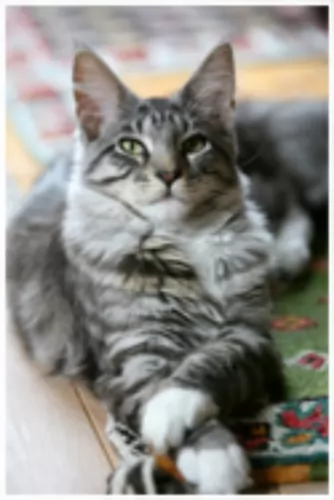 The beauty of American Keuda cats is that they are no-fuss cats and they are energetic, amicable, social, and playful and they make wonderful companions.
The beauty of American Keuda cats is that they are no-fuss cats and they are energetic, amicable, social, and playful and they make wonderful companions.
They are also fond of water and can even strike up a friendship with your dog. By bringing a Keuda into your home you can rely on a steady, loving friendship with your feline friend.
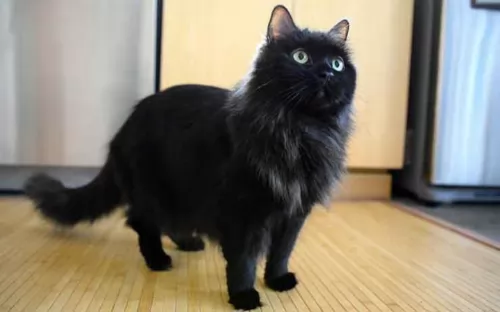 The Chantilly/Tiffany is a gentle and kind breed that is playful and easy-going. They are just your typical middle-of-the-road cats that are not too much or too little of anything.
The Chantilly/Tiffany is a gentle and kind breed that is playful and easy-going. They are just your typical middle-of-the-road cats that are not too much or too little of anything.
The Tiffany is playful, docile, happy and content and he wants to be your friend and companion.
If you are looking for a breed of cat that is loyal to its human family, allow this cat into your home... you won't have any regrets.
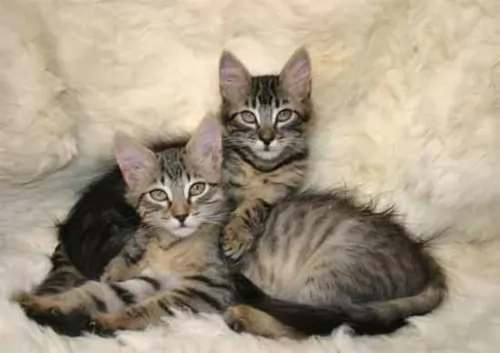 Thes cats enjoy good health and live to be 15 years of age or older even. You just have to watch out for him as they have no undercoats and it’s not a cat to do well in the cold.
Thes cats enjoy good health and live to be 15 years of age or older even. You just have to watch out for him as they have no undercoats and it’s not a cat to do well in the cold.
Whenever you buy a cat for the first time, try and find out about vaccines and previous conditions that might require special treatment.
Healthy kittens and cats are always alert and energetic with shiny coats and clear eyes.
Dental disease is quite common in cats, and it is always a good idea to have your pet’s teeth checked by your vet. Signs of pain with dental problems can include lethargy, pawing at the mouth, facial swelling, and reduced appetite. Get your cat immediately to the vet if you suspect problems with his teeth.
Neutering and spaying are imperative if you don’t want your pet to have kittens. It’s a simple operation for your pet and it comes with many health benefits for your cat. You don’t want your female cat having kittens as there are just already so many stray cats in shelters. Spaying and neutering mellows a cat too, makes them less prone to wandering, spraying, and fighting.
Make sure you have your American Keuda vaccinated against the many cat diseases that there are. Vaccinations are available against feline infectious enteritis or feline parvovirus, cat flu and feline leukemia virus, a disease that damages the cat’s immune system. Kittens require their first vaccine at around 8 weeks of age.
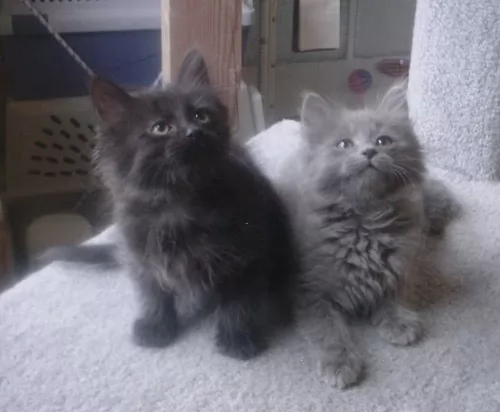 There is no health issue that the Tiffany is prone to. Like any cat, a healthy diet will keep the Tiffany healthy for years.
There is no health issue that the Tiffany is prone to. Like any cat, a healthy diet will keep the Tiffany healthy for years.
These cats are known to have delicate digestive systems so avoid foods with grain if possible. The Tiffany has full hair in their ears, and wax build-up can occur so the inside of his ears must be checked. Checking the ears once a week, as part of a regular routine that includes brushing, and tooth care, should be sufficient to keep the ear canals clear.
Other issues, which are not detrimental but should be kept in mind, are reports that the Tiffany has delicate digestion. This cat relies on a regular diet that doesn't chop and change often.
Because the Tiffany is a low-shedding cat, it is thought to be a popular breed with those people who are allergic to cat hair.
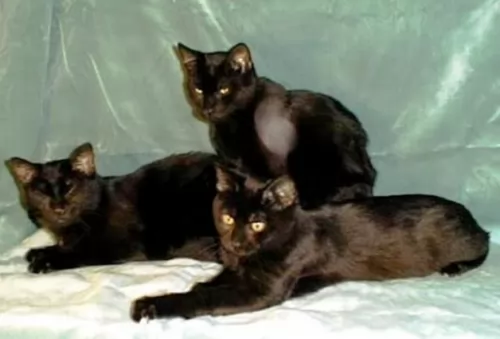 Every cat needs to be fed a complete, balanced high-in-protein food. There are heaps of different brands of cat food on the market - wet and dry. Always follow the manufacturer’s instructions and recommended amounts. If in any doubt about what to feed your cat, speak to your vet. Every cat needs a constant supply of fresh, cool water.
Every cat needs to be fed a complete, balanced high-in-protein food. There are heaps of different brands of cat food on the market - wet and dry. Always follow the manufacturer’s instructions and recommended amounts. If in any doubt about what to feed your cat, speak to your vet. Every cat needs a constant supply of fresh, cool water.
Both young and older cats love to play so ensure you provide your cat with stimulating toys as well as things such as climbing trees and a scratching post. Cats enjoy a high-up place where they can feel safe and view their surroundings from a height.
Cats spend many hours a day sleeping and you need to provide your cat with a warm, dry, comfortable, quiet place to rest. There are many cat beds available, but if you don’t have one, a cardboard box with one side removed and a soft cushion or blanket will do.
Invest in a litter box for your cat to do his business in and keep it in a safe, quiet place where your cat can ‘toilet’ in peace and quiet. These should be placed away from the food and water bowls. Make sure to keep a small plastic rake close by and rake up the cat droppings regularly to ensure the litter tray is nice and clean.
Your American Keuda is a short-haired cat but you want to brush the fur gently at least once a week. Grooming also provides you and your cat with some valuable bonding time.
Provide your cat with a collar to show everyone that he is yours. Also, have your cat microchipped – a tiny chip that carries your pet’s unique ID number and which is inserted safely and gently under the cat's skin.
Have your cat treated and free from parasites such as ticks, fleas, and worms. Speak to your vet about this.
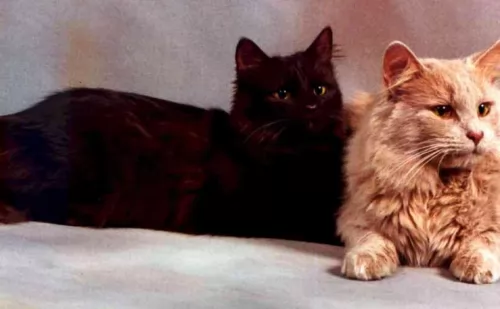 The Chantilly needs an excellet diet and exercise to ensure he doesn’t become to overweght. Remember that cats are carnivores, and this means they have nutritional requirements that can only be met with meat – they can never do well on a diet high in carbohydrates and will develop digestive problems. Your cat will also require clean, fresh water aroud thd clock to ensure his good health.
The Chantilly needs an excellet diet and exercise to ensure he doesn’t become to overweght. Remember that cats are carnivores, and this means they have nutritional requirements that can only be met with meat – they can never do well on a diet high in carbohydrates and will develop digestive problems. Your cat will also require clean, fresh water aroud thd clock to ensure his good health.
Ensure each cat you have has a litter box andencourae good litter box habits by cleaning th litter box every day. Keeping the litter box clean also alerts you anything unusual with your cat’s toilet habits.
Provide your cat with a scratching post and a climbing tree.
The cat doesn’t have an undercoat and is therefore easy to groom. With his semi-long hair, you can brush him once a week to keep the coat soft and shiny. The coat is also low shedding.
Check inside his ears and inside his mouth to ensure there is no redness and signs of infection.
Schedule regular vet visits for your cat for his cat vaccines and for when he is sick.
Spay or neuter your cat to prevent unwanted kittens. Spaying and neutering prevents uterine infections and certain cancers in the felines.